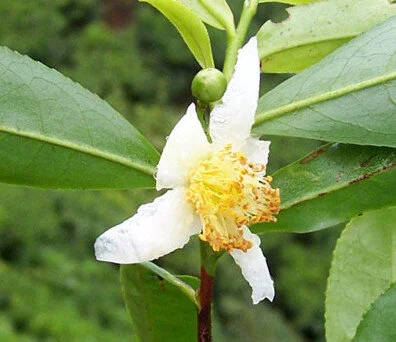Ethical Production
ETHICAL TEA PARTNERSHIP
The ETP is an organization within the tea industry that seeks to better the lives of workers and their families in tea producing countries.
ETHICAL TEA TASTES BETTER
Over the last century and a half, numerous advancements have been made in the way tea is produced, marketed and distributed. One of the more positive of these was the creation of the Ethical Tea Partnership in 1997.
WHAT IS THE ETP?
The ETP monitors and regulates social conditions on tea estates. The organization is run by member companies and bolstered through external audits by Price Waterhouse Cooper (The global accounting firm responsible for tabulating and guarding votes for the Academy Awards.)
A TRANSPARENT VIEW OF THE TEA TRADE
The goal of the ETP is to provide consumers with a transparent understanding of where tea is grown and how it is manufactured. Everything from fair compensation to health coverage, housing and childcare is closely scrutinized.
NORTH AMERICA'S FIRST SIGNER
When ETP membership was opened to non-UK members in 2003, Our Tea Importer was the first company to sign on in support. As a member, contributes to organizational policy and purchases ETP certified teas whenever possible.
HOW DOES THE ETP DIFFER FROM FAIR TRADE?
The ETP has many of the same goals as Fair Trade, but deals only with the tea industry. Because tea is not a publicly traded commodity, such as coffee, Fair Trade is unable to penetrate many of the nuances and regional peculiarities of the tea trade.
Where the ETP also differs from Fair Trade is in primary focus. Fair Trade's primary concern is ensuring sustainable profits for local producers. The ETP on the other hand is a socially and environmentally directed organization. This difference is significant. Why? In some instances, an economically based model in which higher prices are paid to producers leaves the door open for unscrupulous companies to bolster lost margins.
FOOD SAFETY STANDARDS AROUND THE WORLD
Wherever possible, our teas are certified by Fair Trade. The Fair-Trade organization works to ensure sustainable conditions for workers and small producers in the developing world.
HOW DOES FAIR TRADE WORK?
Fair Trade is an international movement that promotes increased standards of living for laborers in developing countries. The movement ensures that a fair percentage of profits for goods sold remains in the hands of the workers who created them. The organization also attempts to regulate environmental controls on industries in the developing world.
LUXURY TEAS ARE NOT PRODUCED BY A WORKFORCE UNDER DURESS
In order to produce superior quality teas a healthy workforce with a vested economic and social interest in their product is required. On better estates, this means free schooling and medicare for families, in addition to sustainable levels of income.
HOUSING, HEALTHCARE AND EDUCATION
All Teas are sourced from estates with excellent track records of social welfare. Estates build homes, hospitals and schools to ensure workers and their families are well cared for. On some estates, the same families have lived and worked there for generations. In many cases, the standards of amenities provided exceed those of their respective governments.
WHAT IS THE RAINFOREST ALLIANCE?
The Rainforest alliance launched its tea certification program in 2007. Since that time, our importer has worked to include Rainforest Alliance certified teas as much as possible.
The organization works to conserve biodiversity and ensure sustainable livelihoods by transforming land-use practices, business practices and consumer behavior.
SUSTAINABLE AGRICULTURAL STANDARD
In 2005, The Rainforest Alliance set the following 10 standards to be followed by certified farms.
· Social and Environmental Management System
· Ecosystem Conservation
· Wildlife Protection
· Water Conservation
· Fair Treatment and Good Working Conditions for Workers
· Occupational Health and Safety
· Community Relations
· Integrated Crop Management
· Soil Management and Conservation
· Integrated Waste Management
TEA on the 45TH
Whenever possible, we source teas from gardens that adhere to these principles above, and our importer does its own inspections of the growers.
